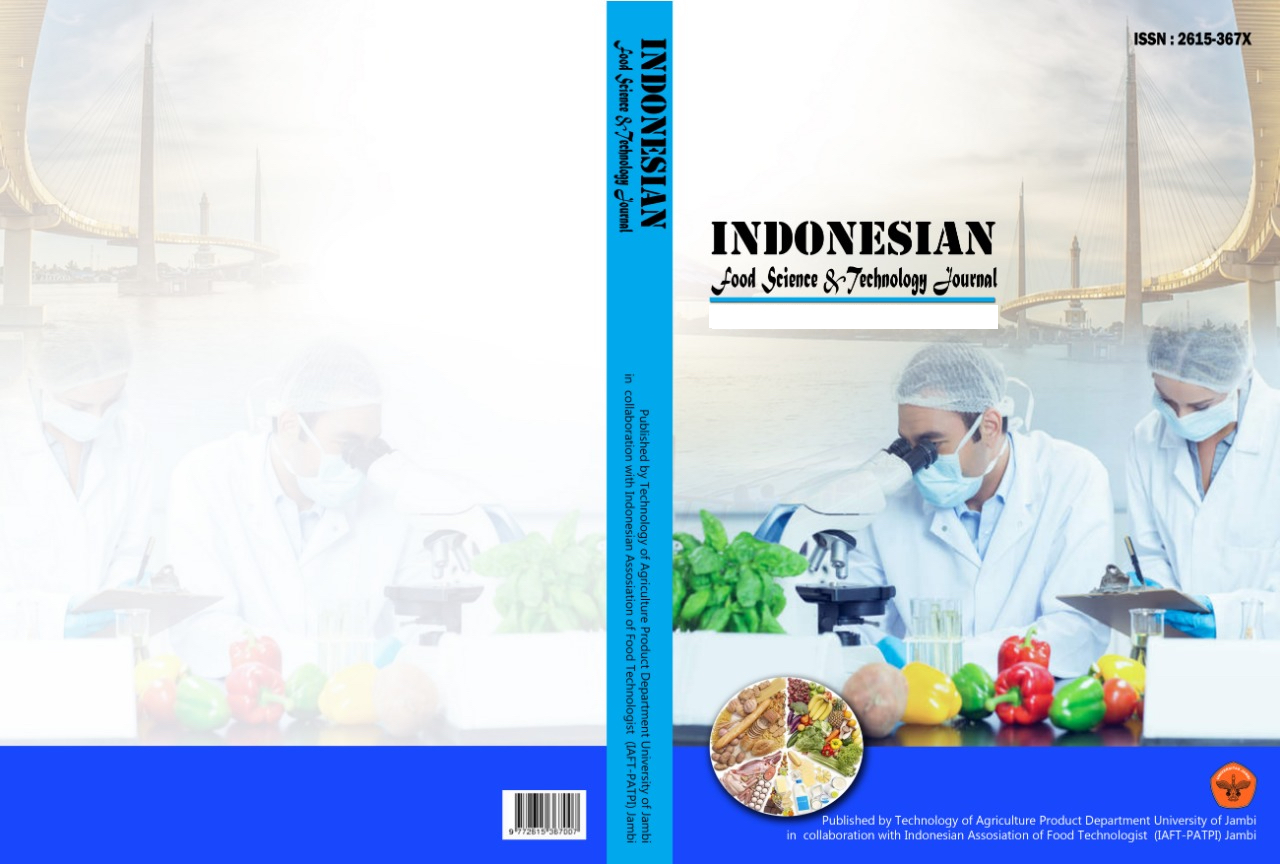Performance Improvement of Fruit Ripeness Smart Label Based On Ammonium Molibdat Color Indicators
DOI:
https://doi.org/10.22437/ifstj.v3i2.10178Abstract
Research in fruit ripeness indicator is still experiencing especially due to major difficulties of several fruits with no color changes in its skin when it is ripen. From the previous research, there was found that ammonium molybdate [(NH4) 6Mo7O24.4H2O] embedded in the polymer matrix could be used as an indicator label to detect the ripeness of climacteric fruits base on the color change from yellow to blue and then green. However, the performance label still needs to be developed further. The surface of the label was still poor due to air or bubble trapping inside the film. It was found that mixing H2O2 and molydate agent produced air or bubble thus in this research, a pre-treatment of film solution was done to chase away the air by storing and vacuuming the solution in cold temperature and time period of storage. A variety of film drying method was also carried out to find the best temperature of the oven to produce smooth surface of the film. The sensitivity of the label to ethylene gas was improved by adding more agent solution into the film. The best form of smart labels was produced using an oven at 40°C for 18 hours. The label composition was 100 mL distilled water, 3.5 g PVOH, 2 mL glycerol, and a color indicator solution (ammonium molybdate and hydrogen peroxide ratio of 1:10) at 4 mL. The molydate solution had to be stored for 3 days in temperature of 7oC before used. The label sensitivity was improved as low as 100 ppm of pure ethylene gas. Label application in a pack of avocados showed a relationship between label color changes and fruit quality degradation. The value of hue label on days 0 to 6 changed from yellow to greenish yellow, while on the 7th to the 10th day the color of the label was still in the same color as the day of 6th. Decreasing the quality of fruit during storage can be seen from the increase in the percentage of weight loss and hardness of fruit texture.
Downloads







